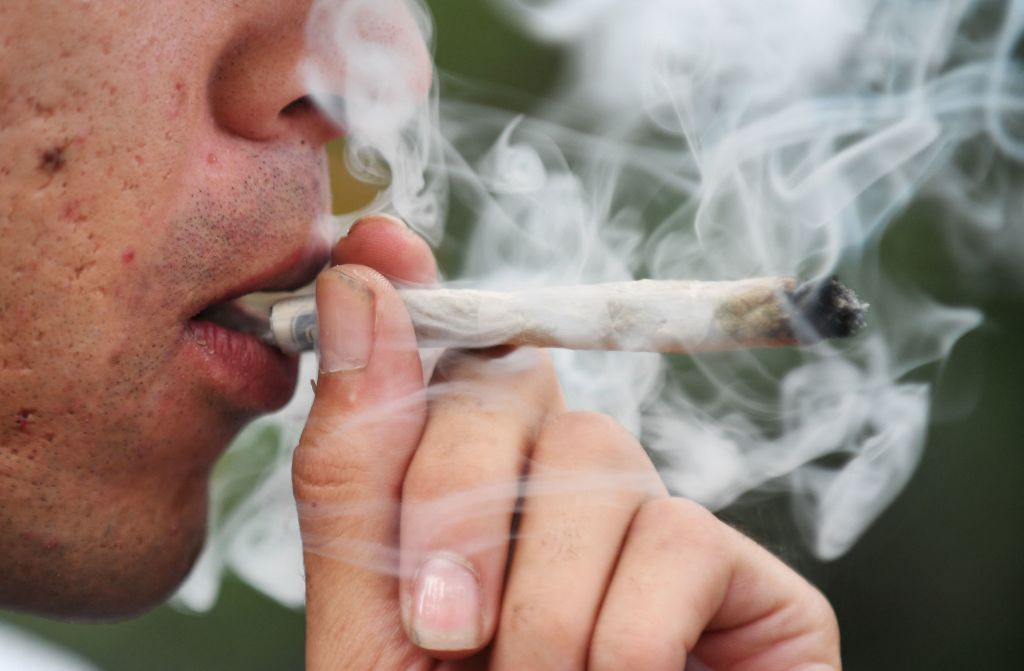
Lisa Jarvis: Going ‘California sober’ may be bad for your heart
The evidence is mounting that your daily toke can be bad for your heart. A large new study in the Journal of the American Heart Association found that the more often someone partakes in cannabis, the higher their risk of heart disease, heart attack or stroke. Daily users had a 25% higher chance of having a heart attack and 42% higher odds of a stroke than non-users.
It’s the latest in a string of studies showing a connection between marijuana and heart health. An important caveat: All of the research is observational, meaning the findings rely on surveys that ask people to recall their habits and health conditions rather than following participants in real time. Our memories are fallible. People can also massage the truth. For example, the self-reported rate of cannabis use in the new study was below what has been seen in other surveys, suggesting some might not have owned up to their habits.
But even with those limitations, the trendline is clear enough to put the cardiovascular risk on the radars of regular pot users. That’s especially true at a moment when recreational cannabis is on the rise, and is being framed as the “healthy” alternative to drinking. CDC data suggest Gen Z is embracing the “California Sober” lifestyle, eschewing alcohol for pot.
Cannabis companies are leaning into the aura of health. During Dry January, a public health initiative to encourage people to re-evaluate their relationship with alcohol, I was flooded with pitches from cannabis companies hoping to fill the void (a strategy that, based on data from Morning Consult, seems to be working). One firm said their THC-infused drinks were “healthier and more mindful” than alcohol, offering “relaxation and enjoyment without the potential drawbacks.”
Healthier? Maybe — the answer depends on how often and how much of either substance you’re using, as well as in what format. But healthy? That’s a bold claim. We just don’t have as much good data on marijuana as we do with alcohol — but that absence of evidence shouldn’t be confused with proof that it’s harmless.
Conceptually, the idea that weed could increase the risk of cardiovascular events for some users shouldn’t be a surprise. Delta-9 THC “very reliably and dose dependently” increases heart rate and cardiovascular stress, says Ryan Vandrey, who helps run the Cannabis Science Laboratory at Johns Hopkins University. Meanwhile, some users can experience a significant drop in blood pressure when suddenly sitting up or standing–causing light-headedness or dizziness.
This latest study, which analyzed data from the more than 400,000 Americans interviewed each year for the Centers for Disease Control and Prevention’s Behavioral Risk Factor Surveillance Survey, starts to untangle one of the knottiest questions surrounding cannabis and heart health. Given that many marijuana users in earlier studies also smoked cigarettes, which have long been associated with heart disease, the data were always left open to interpretation.
People wondered, “Is cannabis an innocent bystander, or does it contribute to coronary heart disease?” says Robert L. Page, a professor at the University of Colorado School of Medicine’s Skaggs School of Pharmacy and Pharmaceutical Sciences.
These results drop the façade. An increased risk of heart disease, heart attacks and stroke persisted for the survey participants who had never smoked tobacco or used e-cigarettes.
“That is a big answer,” Page says. He often talks to patients who think smoking pot is healthier, “and that is a complete misconception.” That’s particularly true, he says, for people who already have underlying risk factors or underlying heart disease.
The study left open a number of key questions worth pursuing. For example, the main method of cannabis ingestion among survey participants was smoking. So the research can’t tell us whether increasingly popular alternatives like gummies or THC-infused drinks pose an equal risk to heart health. Small studies by Vandrey’s lab have shown that smoking and edibles produce similar changes in heart rate, and other, limited trials suggest that yes, edibles also carry a cardiovascular risk.
Another missing piece: Does the potency of the pot matter? Most of the studies on cannabis and heart health were done on what Page describes as “first-generation cannabis,” meaning strains that were cultivated in the wild.
But modern dispensaries aren’t selling your grandparents’ weed. THC content today is typically much higher. Does that mean it’s riskier?
What would help the most at this point is to run a large study that followed subjects over time to understand the connections between cannabis consumption and heart health. That same study could also winnow out any other health effects — good or bad — from recreational use.
The US needs that type of data. At present, recreational marijuana is legal in 24 states, decriminalized in another seven, and could soon be expanded to other parts of the country. That has bred an industry offering an ever-evolving array of products (with an ever-evolving array of cannabinoids at varying doses, consumed in various ways) that have very little toxicology or pharmacology data behind them. “It’s all brand new, and we really do not have a good sense of what the long-term health effects of what those products will be,” Vandrey says.
But the data we do have suggest that recreational pot users shouldn’t assume their habit is benign — much less healthy.
Lisa Jarvis is a Bloomberg Opinion columnist covering biotech, health care and the pharmaceutical industry. Previously, she was executive editor of Chemical & Engineering News.
Related Articles
Thomas Friedman: Inside America’s shadow war with Iran
Bret Stephens: The new rape denialism
Robert Pearl: 3 surprising lessons for U.S. medicine from around the world
David French: The Supreme Court just erased part of the Constitution
Trudy Rubin: 4 ways the US should help Ukraine right now

